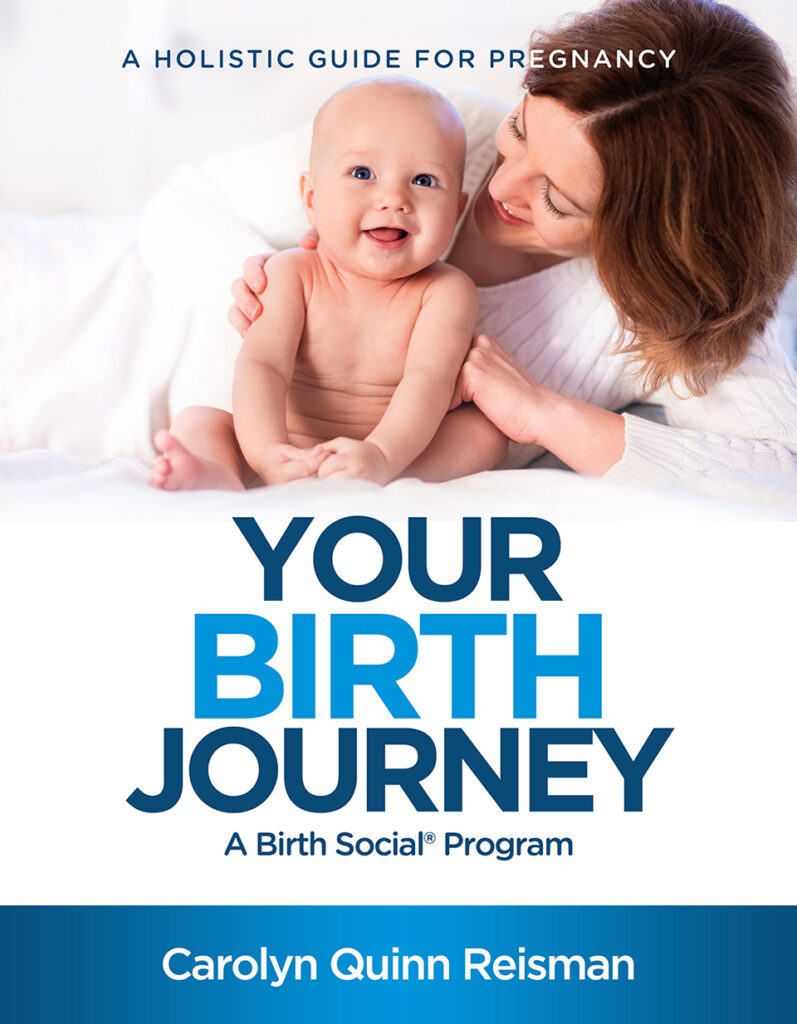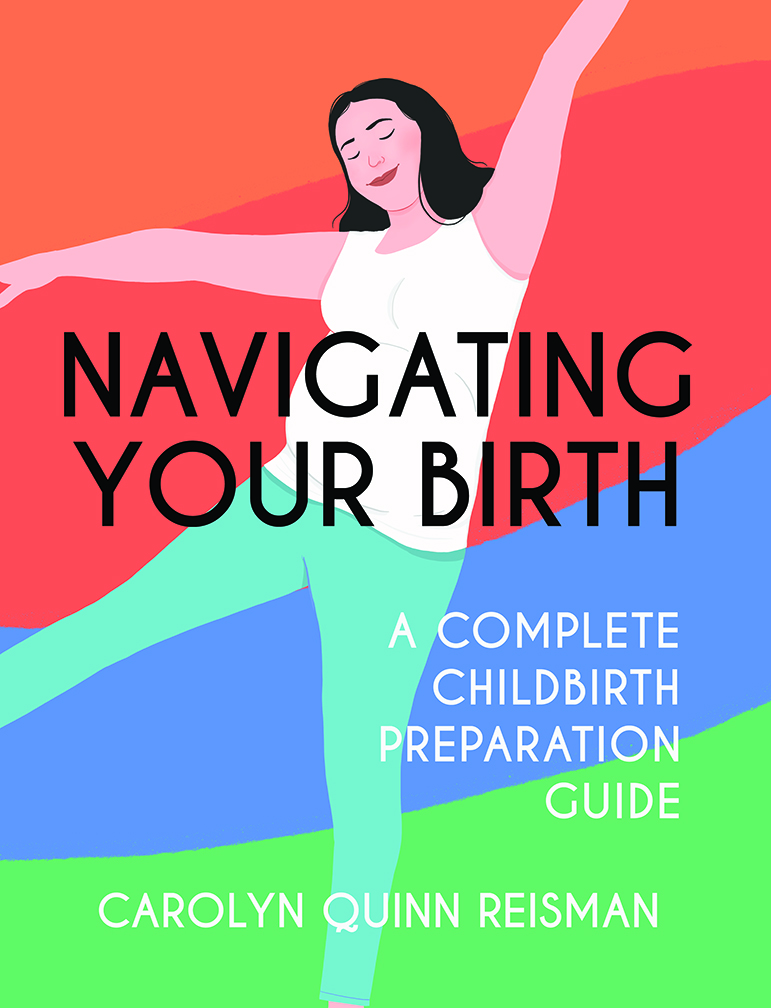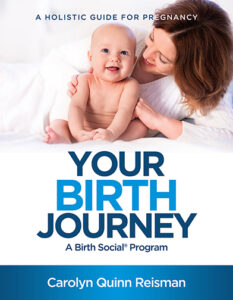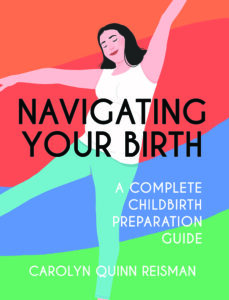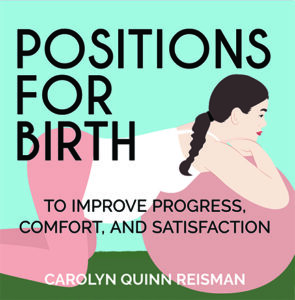The sign at the birth center I owned read, “Please do not wear scented products. Chemical fragrance can trigger serious health reactions, including severe headaches, shortness of breath, and dizziness. Please be considerate of the pregnant mothers, babies with brand new respiratory systems, and the midwives in our office and leave your fragrance at home. Thank you.”
Statistics show that up to 30 percent of the American population react to perfumes and fragrance, and I am one of them.
It took judicious diplomacy to insert my “no-fragrance” policy at my midwifery office, in our literature, on our website, and in the book I wrote, even extending into the homes where I attended births. I had to ask myself hundreds of times, “What right do I have to tell families not to wear fragrance? Will mothers think that is too weird and choose to go elsewhere?” It was scary creating a fragrance-free policy. It is even more terrifying when I go into anaphylactic shock from fragrance exposure. My love for serving women shaped my journey. No matter what, I could do this.
My apprehensions were put to rest when I discovered that most mothers under my care appreciated the fragrance-free policy. Four factors strengthened this position:
- A pregnant mother’s heightened sense of smell.
- Women’s growing awareness of the harm caused by chemicals.
- Women and their partners who also reacted to fragrance.
- Women’s willingness to learn everything they could during pregnancy to protect themselves, their babies, and their families from harm.
I was not alone. However, I am on the fringe when it comes to having a fragrance-free policy.
Preventing harmful environmental exposure demands policy changes. However, midwives and providers are slow to translate evidence-based findings into prevention on a large scale, even when the American Congress of Obstetricians and Gynecologists (ACOG) recognizes that prenatal chemical exposure is linked to various adverse health consequences.
An analysis of National Health and Nutrition Examination Survey data “from 2003–2004 found that virtually every pregnant woman in the United States is exposed to at least 43 different chemicals. Chemicals in pregnant women can cross the placenta, and in some cases, can accumulate in the fetus, resulting in higher fetal exposure than maternal exposure. Prenatal exposure to environmental chemicals is linked to various adverse health consequences, and patient exposure at any point in time can lead to harmful reproductive health outcomes.”
Why Are Midwives Slow to Support an Evidence-Based Position on Fragrance in Their Practices?
Most midwives belong to a professional midwifery organizations committed to supporting the Midwives Model of Care. They have adopted position statements that express the importance of women’s autonomy, informed decision making, and evidence-based care. The growing evidence on the harmful effects of fragrance is not hard to find.
- Health and societal effects from exposure to fragranced consumer products, 2017
- Fragranced consumer products: exposure and effects from emissions, 2016
- Washington Post article on fragrance, 2018
Based on the evidence, it should be easy to establish fragrance-free policies in midwifery practices. It would be like putting up “no-smoking” signs. So, if midwives are not putting up signs or implementing fragrance-free policies – why? Either they:
- They have not done the research
- They disregard the research
- They are afraid to ask mothers not to wear fragrance
I think it is a combination of the three. We live in a world where fragrance is valued in almost every product we use. Scent sells. How could it be bad for us?
On a deeper level, I believe midwives are reluctant to ask mothers not to wear fragrances. This attitude was made very clear to me when several midwives point blank said, “You have no right to ask women not to wear fragrance.” My reply, “It is not only my right; it is my obligation to inform parents of the harmful effects of fragrance.” Why wouldn’t I?
Putting up a no-fragrance sign is personal and bold. It makes a statement. It is a boundary that most midwives are afraid to cross. From experience, I understand entirely. Telling mothers and families that they must adhere to a fragrance-free policy was one of the hardest things I ever had to do. It is as simple as that. The question is, where does that leave mothers?
While the burden partly rests on midwives advocating for healthy changes, the ultimate responsibility lies with consumers. That’s you. Here are two things you can do to advocate change:
- Reduce exposure by changing your purchasing patterns.
- Ask your midwife to create a fragrance-free policy.
Do You React to Fragrance?
It might also help you understand the kinds of reactions that you or anyone you know might have to fragrance. Take some time and check the reactions you or your friends, loved ones, or acquaintances have had to fragrance or perfume. This is not a checklist that you can save and submit. It is for your personal information.
Itchy eyes
Runny nose
Eye irritation
Skin irritation
Headaches
Difficulty breathing
Dizziness
Throat irritation
Swollen glands
Vomiting
Abdominal pain
Confusion
Anxiety
Weakness
Impaired concentration
Drowsiness
Faintness
Racing pulse
Low-risk women seeking a midwife’s care expect them to provide personalized, evidence-based care, and health advice. Among the many advantages of seeing a midwife is they advocate for healthy food choices, eating during labor, delayed cord clamping, upright positions during labor, limited use of interventions, skin-to-skin with baby, and much more. The foundation of the care is time-honored and evidence-based. Why would you want anything less when it comes to fragrance?
ACOG, Reducing Prenatal Exposure to Toxic Environmental Agents. Committee Opinion Number 832, July 2021.
National Institute of Health, National Library of Medicine, Prevalence of fragrance sensitivity in the American population. J Environ Health, March 2009.
National Institute of Health, National Library of Medicine, Fragranced consumer products: exposures and effects from emissions. Air Qual Atmos Health, October 2016.
Science Direct, Health and societal effects from exposure to fragranced consumer products. March 2017.
Washington Post, Bothered by fragrances? This story will be a breath of fresh air. March 20, 2018.



